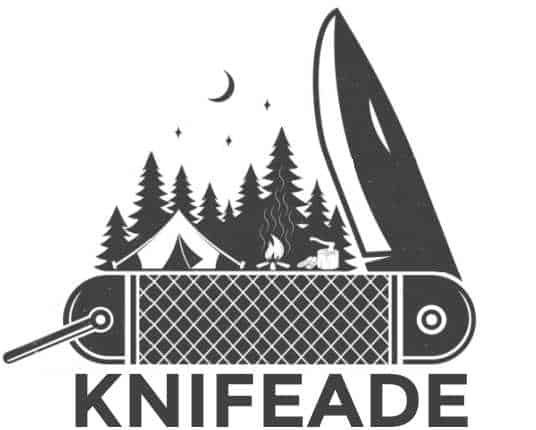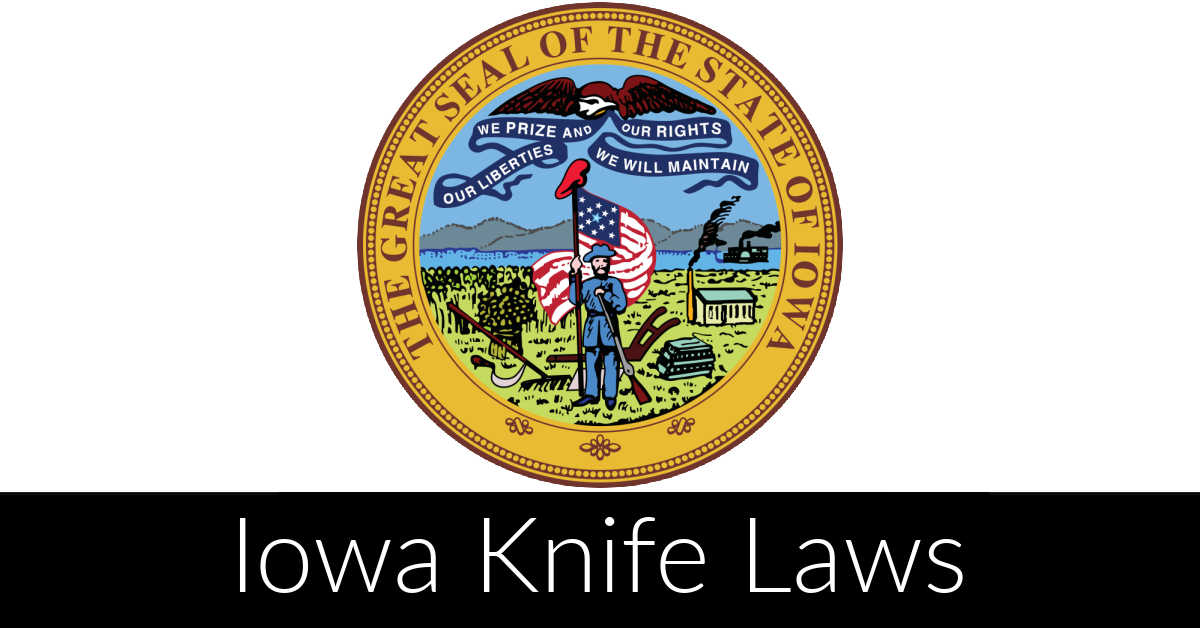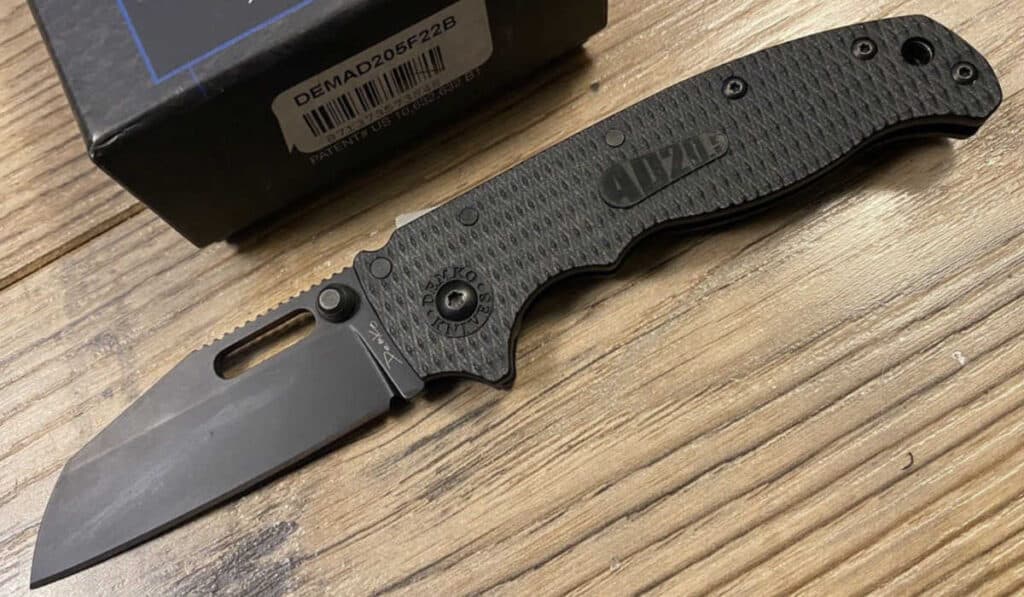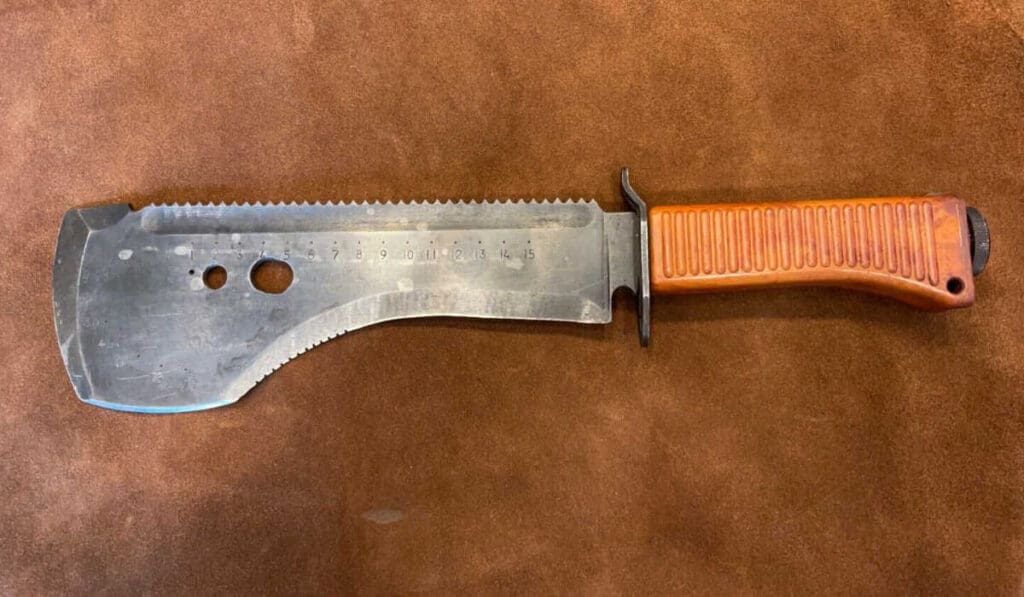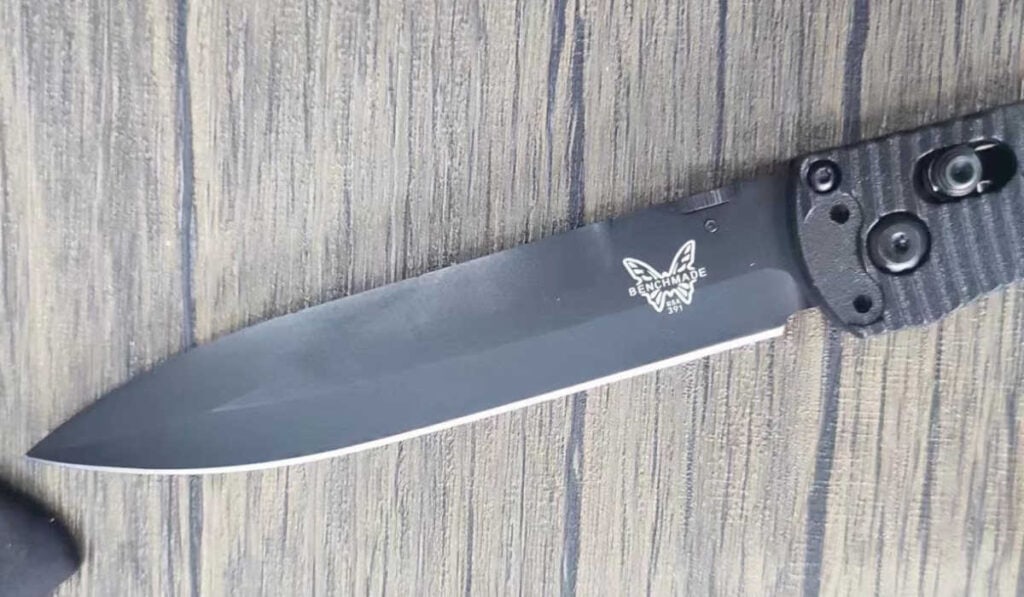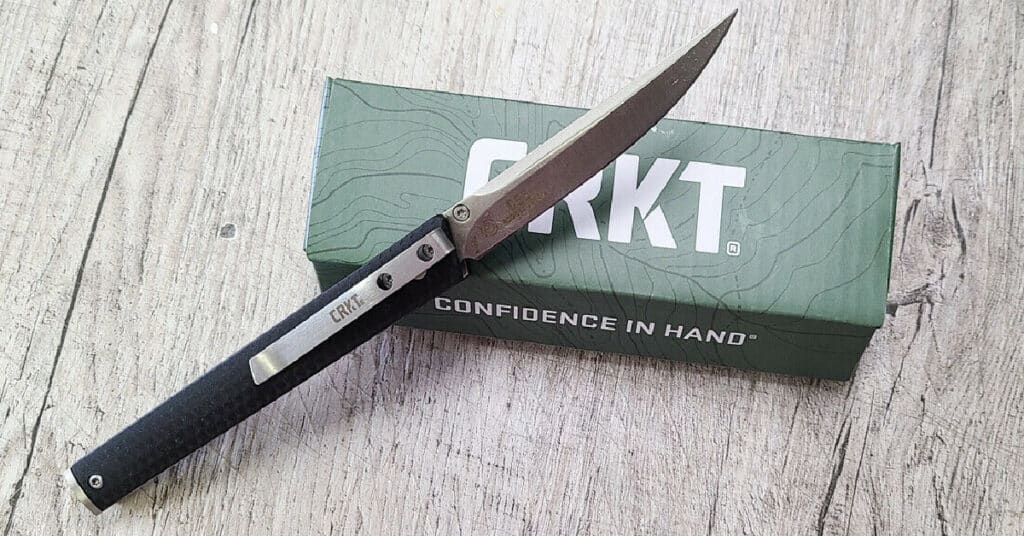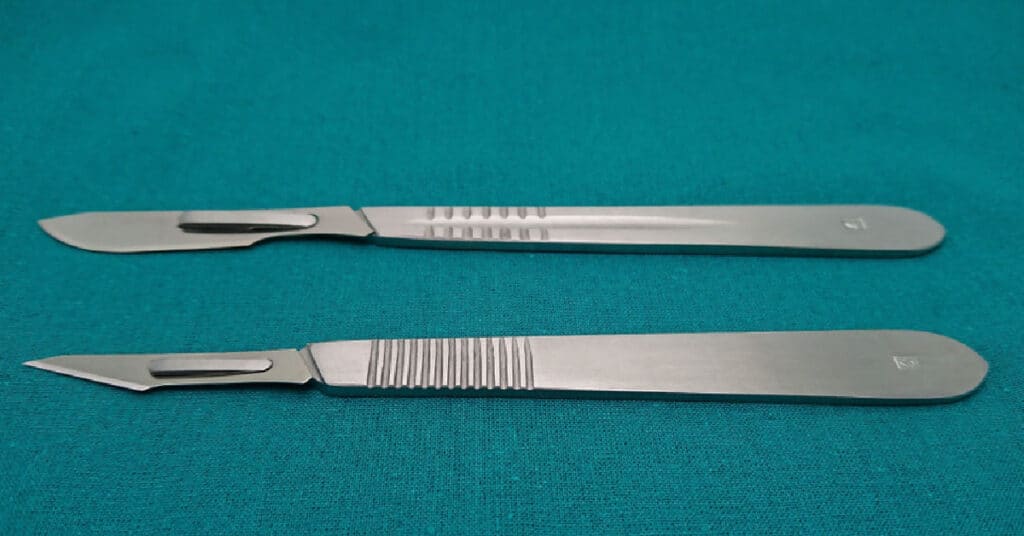Last updated on October 20th, 2023 at 08:57 pm
As an Amazon Associate I earn from qualifying purchases.
Interested in purchasing a pocket knife in Iowa, but uncertain about the legal implications? Knife laws can indeed be intricate, so having a solid understanding before making a purchase is wise.
This article sheds light on Iowa’s knife laws, covering the types of pocket knives allowed, age restrictions for ownership, and carrying regulations. We will also delve into prohibited features and the penalties for violating these rules.
By the end, you’ll have a clearer insight into how Iowa knife laws pertain to your situation. However, for a full understanding, further research may be necessary. This article aims to provide a good starting point.
Our Top Rated “50-State-Legal” Knives
*These knives are listed based on their broad legality across states, but always consult your local laws before making a purchase.
Types of Pocket Knives Allowed in Iowa
Folding Knives
Folding knives are a popular choice due to their compact design. In Iowa, folding knives are permissible, although certain types with automatic opening mechanisms, like switchblades, may be classified as dangerous weapons if the blade exceeds 5 inches.
Fixed Blade Knives
Fixed blade knives are also legal in Iowa. However, concealing such knives can be an issue, especially if the blade length exceeds 5 inches, categorizing them as dangerous weapons.
In Iowa, folding knives, fixed blade knives, and multi-tools are all allowed as pocket knives.
Age Restrictions for Pocket Knife Ownership in Iowa
The legal age for owning a pocket knife in Iowa is 18. Exceptions might apply for hunting or other lawful purposes, although this wasn’t explicitly found in the sources.
Carrying and Concealing Pocket Knives in Iowa
Open Carry Laws
Open carry of pocket knives is generally allowed in Iowa, provided they are not classified as “dangerous” or “offensive” weapons.
Concealed Carry Laws
Concealed carry laws are more nuanced. Knives deemed as dangerous weapons—those with blades exceeding 5 inches or certain types like daggers, switchblades, etc.—cannot be carried concealed. Local regulations may impose additional restrictions, so checking local laws is advisable.
Penalties for Violating Knife Laws in Iowa
Violating knife laws, such as concealing a dangerous weapon without a license, can lead to serious legal repercussions. It’s crucial to adhere to state and local laws to avoid penalties4.
FAQs in Relation to Iowa Knife Law
Do you need a license to carry a knife in Iowa?
No license is required to carry a pocket knife, but concealing certain types of knives might require a license due to their classification as dangerous weapons.
Do you need a permit to carry a switchblade in Iowa?
Switchblades are legal to carry openly, but concealing them may be restricted if the blade exceeds 5 inches.
Is it legal to carry an OTF knife in Iowa?
The legality depends on the specific mechanism and blade length. If it’s akin to a switchblade and the blade exceeds 5 inches, concealed carry restrictions apply.
Are fixed blade knives legal in Iowa?
Yes, they are legal, but concealing them, especially if the blade length exceeds 5 inches, is restricted.
Are butterfly knives illegal in Iowa?
Butterfly knives are generally considered folding knives and are not specifically restricted unless the blade exceeds 5 inches when they fall under the dangerous weapon classification.
Is it legal to carry a knife on your belt in Iowa?
Yes, it’s considered open carry which is legal for both folding and fixed blade knives unless they are classified as dangerous or offensive weapons.
Are automatic knives legal in Iowa?
Automatic knives are legal, but the same restrictions apply for concealed carry if the blade exceeds 5 inches.
Are gravity knives legal in Iowa?
Gravity knives aren’t specifically mentioned, but they may fall under the category of folding knives. The same blade length restrictions apply for concealed carry.
Does Iowa have knife length laws?
Yes, a blade exceeding 5 inches categorizes a knife as a dangerous weapon that has restrictions on concealed carry.
Iowa State Knife Law References
Official Sources of Iowa’s Knife Laws
- Iowa Code Section 702.7 defines what constitutes a dangerous weapon, including certain types of knives.
- Section 724.4 of the Iowa Code provides stipulations on carrying weapons, including knives.
- Other relevant sections in the Iowa Code include 724.1 (Definition of offensive weapons), 724.4A (Weapons free zone and enhanced penalties), 724.4C (Possession of dangerous weapons under the influence), 724.28 (Prohibition of regulation by political subdivisions of the state), and 724.32 (County courthouse – weapons prohibitions).
Significant Court Cases:
| Case Title | Summary |
|---|---|
| State v. Lacey | Case discussed certain instructions related to knife laws. |
| State v. Newsom | Concerned the test for concealment under Iowa law. |
| State of Iowa v. Jacob Lee Goble | Case details weren’t specific to knife laws, but may have involved weapon laws. |
Timeline of Major Changes:
- Law HF756 (2021): On April 2, 2021, Governor Reynolds signed HF756 into law, removing the requirement for a permit to acquire or carry a firearm in public places, subject to certain limitations. This law went into effect on July 1, 2021, and although it primarily concerns firearms, the implications for carrying dangerous weapons, including certain knives, could be inferred from the broader legal changes.
Conclusion
Understanding Iowa’s knife laws regarding types of pocket knives, prohibited features, age restrictions, and carrying rules is crucial to ensure you remain within the legal boundaries. Being well-versed in these regulations allows you to enjoy your pocket knife responsibly and legally.
Do Sheepsfoot Blades Have A Purpose? (Cuz They’re Ugly…)
Spetsnaz Machetes – Blades Of The Russian Special Forces
What Is The Actual Purpose Of A Spear Point Knife Blade?
CRKT CEO Review – Coolest, Most Worthless Knife Ever?
How Sharp Is A Scalpel? (Is It Sharper Than A Razor?)
Can You Shave With A Knife? (Yes, Here’s How)
As an Amazon Associate I earn from qualifying purchases.
